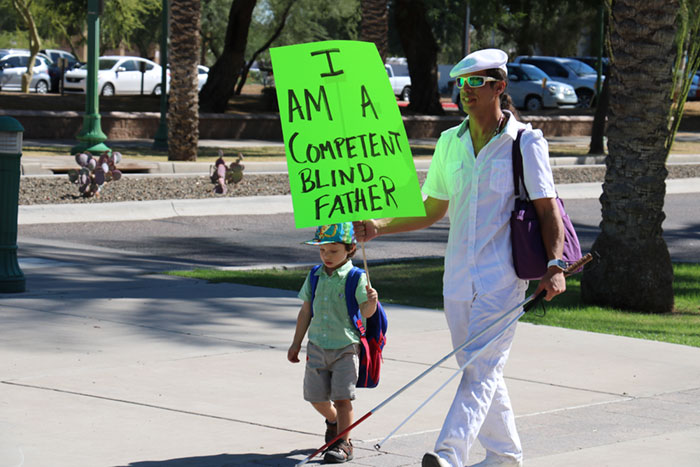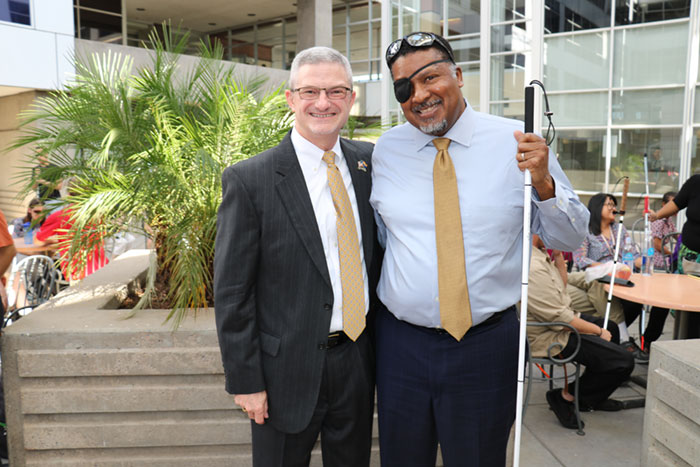White Cane Safety Day Celebrates Independence
If you’ve ever seen a blind or visually impaired person use a white cane to get around, at first glance, you may chalk it up as simply a tool they use to navigate their path, but it is much more than that. The white cane is a symbol of independence for the blind and visually impaired, who marked the first-ever “White Cane Safety Day” in America in October of 1964.

Each year White Cane Safety Day is celebrated to highlight the achievements that blind and visually impaired individuals have made in our country. On Thursday, October 19, blind and visually impaired Arizona residents came to the Department of Economic Security (DES) headquarters in downtown Phoenix to kick off White Cane Safety Day activities.
“We come here to DES each year because it’s the comprehensive services that DES provides to the blind that allows us to be independent,” explained National Federation of the Blind of Arizona Tucson chapter President Amy Porterfield.
The courtyard at DES headquarters was brimming with confident, happy and determined blind individuals, friends, and family members all preparing to march to the Capitol building with one goal in mind - to raise awareness of Arizona’s blind residents.
“We go to the Capitol building to give the blind a voice,” said National Federation of the Blind of Arizona Tucson Director Donald Porterfield. “No one knows more about being blind than the blind.”
The agenda for this year’s White Cane Safety Day was three-fold: first, to continue to raise awareness of the achievements made by Arizona’s blind residents. Second, to highlight the fact that Arizona’s blind residents are contributing community members who have jobs and pay taxes just like the sighted. And finally, to seek equality for blind parents, and their children.
The passionate group met with DES leaders, including Director Timothy Jeffries and Division of Employment and Rehabilitation Services (DERS) Assistant Director Michael Wisehart before marching to the State Capitol building for a meeting with blind equality advocate State Senator Steve Farley.

“Everyone has the equal right to have full mobility,” said Farley, who talked about his efforts to make public transit systems equally accessible for all. The day of awareness concluded with Farley’s reading of the Governor’s proclamation for White Cane Safety Day.
Great headway has been made in proving the blind are just as capable as anyone else. But there is still work to be done. Colleagues within the Department of Economic Security, specifically within DERS, have worked diligently to serve blind and visually impaired Arizonans. With contracting partners like Southern Arizona Association for the Visually Impaired (SAAVI), DES is able to provide programs that help teach blind clients how to travel safely and live independently.
DES celebrates the many successes that have been achieved by Arizona’s blind and visually impaired, and its all-encompassing services are regularly being evaluated to meet the changing needs of these clients.
By Jillian Seamans

